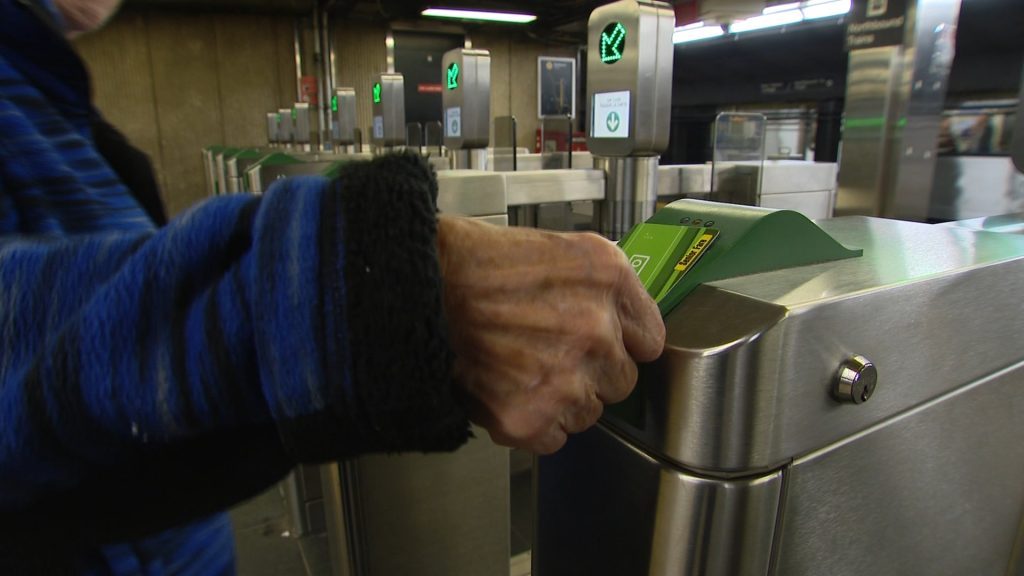CityNews Rewind: The TTC Wildcat Strike Of May 2006
Posted March 11, 2008 12:00 pm.
This article is more than 5 years old.
The rumours had started that weekend – the Amalgamated Transit Union Local 113 was upset with the way their members were being treated and were talking about a wildcat walkout first thing Monday morning. But it couldn’t be real, could it?
It was.
Hundreds of thousands of commuters were caught off guard, when they woke up that summer-like morning of May 29, 2006 to discover the TTC’s fleet of buses, subways and streetcars had been put in park.
Union boss Bob Kinnear insisted he hadn’t done anything to encourage the job action. “It’s not our organization that’s putting out the threat,” a spokesman insisted on Sunday night. “It’s the frustration of the members. We’ve instructed them to go to work.”
But in a tit-for-tat back-and-forth, then-TTC GM Rick Ducharme adamantly denied it. “They’ve been coached in all of this, and to use employees in that way to me is despicable.”
The dispute appeared to centre on safety and compensation for drivers assaulted on the job and was complicated when collectors refused to force passengers to pay their fares, after several employees were assaulted.
But management had a different take, claiming the union was simply pulling a power play about the change in shift for several janitors, who didn’t want to work overnight.
Whatever the reason, the city exploded in chaos the next morning when the system came to a halt without warning and traffic gridlock took over for nearly a million stranded commuters.
The union called it a lockout, the city a wildcat strike. Mayor David Miller was apoplectic. “I never believed that they would break the law, and I think all Torontonians’ faith was shaken a little bit today,” he intoned.
By the time many straggled into work late and angry, passengers didn’t want to hear any more excuses.
“I’m upset, sweaty, tired. I’ve been walking,” one grumbled.
“I’m totally pissed because I totally depend on the T.T.C., right?” another fumed. “It’s like it’s what I do. It’s how I live, and obviously here I am.”
Others were furious that they’d gotten so little notice. “I mean if it was announced earlier then I could have made plans and organized my day better,” one sidelined rider complained.
Many carpooled, drove downtown hunting for sparse parking spaces, took heavily booked cabs, roller bladed, hitchhiked, bicycled or even walked hours to get to work. And some were forced to improvise. “Right now I’m buying flip-flops because I cannot walk in my shoes anymore,” a female commuter explained.
The city immediately went to court and the Ontario Labour Board to force the union back. It took two attempts, but finally, faced with legal action and huge fines, the workers agreed to come back to their jobs. They returned ten hours later, getting the buses and streetcars running. But the subway remained idle until the next day.
The stoppage cost the TTC $2 million in lost fares and they were forced to issue a rebate to Metropass holders who lost a day’s worth of rides.
The bitterness of the one day strike took weeks to subside and whatever goodwill the union may have had before it started was gone in those few hours. Many came back to the TTC after the brief but troubling inconvenience. But as always happens in these cases, those who found a temporary better way decided to stick with it, abandoning a system they found they could no longer count on.
It was by no means the longest TTC strike in the city’s history – an agonizing 19-day shutdown paralyzed Toronto in 1952, while a 12-day strike had similar consequences in 1970 – but the ill feelings that accompanied what some felt was an unjustified walkout have never faded for many.
They’re hoping the ATU and management both learn the lesson from the past, as a possible April 1st strike deadline looms.
To see our original stories from that day, click the video links above.








